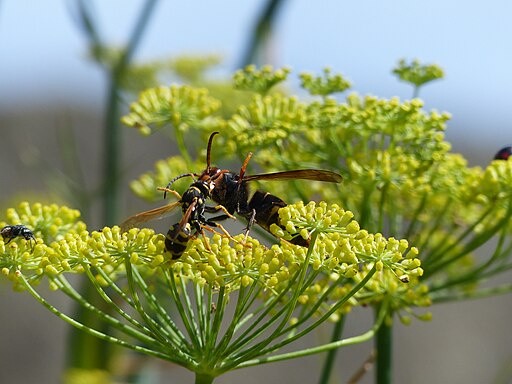
A number of non-native invasive species have become established in the UK, and they can cause harm to the British environment and native wildlife.
Some of the most stubborn invaders in the country are plant species like Japanese knotweed and Himalayan balsam and animals such as American bullfrog and quagga mussel. Added to this list is the Asian hornet, which has been reported in record-high sightings.
Impending Invasion
The UK is warned of an invasion of Asian hornets as the number of this predatory insect is set to surge in the coming weeks. Experts urge people to remain vigilant after a 3,800% increase in sightings of these insects last year.
UK's chief plant health officer, Nicola Spence, has asked the public to report any sightings of the stinging bugs this summer. The warning comes as wildlife experts reveal that warmer weather makes it easier for invasive species to thrive and spread in the UK. According to Wildlife and Countryside Link chief executive Richard Benwell, invasive species are already one of the major threats to the British environment, from outcompeting native species to smothering waterways.
The country faces one of the biggest invasions of the Asian hornet in recent years. Just last year, the invasion prompted the National Bee Unit to destroy 72 nests in 56 locations across the UK, mainly in Kent. The non-native invasive species are not established in the country, which means that they do not have a stable breeding population, although they regularly arrive and create nests.
Invasive species are likely to reach record levels as the climate changes, experts warn. The Rivers Trust Policy and Science director Dr. Rob Collins said that the weather conditions during the winter have left the local trusts struggling in trying to monitor the invasive species. For this reason, the general public is encouraged to report all sightings of the Asian hornets to the Asian hornet Watch app.
A coalition of 83 nature groups calls for the creation of a biosecurity citizens army. It has also called on the British government to triple the annual budget for invasive species biosecurity to 3.81 million dollars (three million pounds) in order to fund a permanent dedicated Invasive Species Inspectorate.
Devastating Impacts of Asian Hornets
Asian hornets are usually not dangerous to humans, but they can be devastating to bees and other pollinators. They have spread widely in Europe by crossing the channel on shipping vessels or by air when the winds are strong.
It is estimated that each of the 700 hornets in a nest can consume up to 50 honey bees in a single day. This can damage native wild hives and farmed honey bees. According to Benwell, Asian hornets and other invasive species can cause billions of pounds in damage a year to businesses and residential areas, even posing risks to human health.
The stings of Asian hornets are not usually fatal, but in extreme cases, repeated stings can cause anaphylactic reactions and kidney failure. Even in Japan, where these insects are native, their stings can lead to 30 to 50 deaths per year.
RELATED ARTICLE : Asian Hornet Invasion in Europe Traced Back to a Single Queen Bee Introduced to France in 2004, Study Reveals
Check out more news and information on Invasive Species in Science Times.
© 2025 ScienceTimes.com All rights reserved. Do not reproduce without permission. The window to the world of Science Times.











